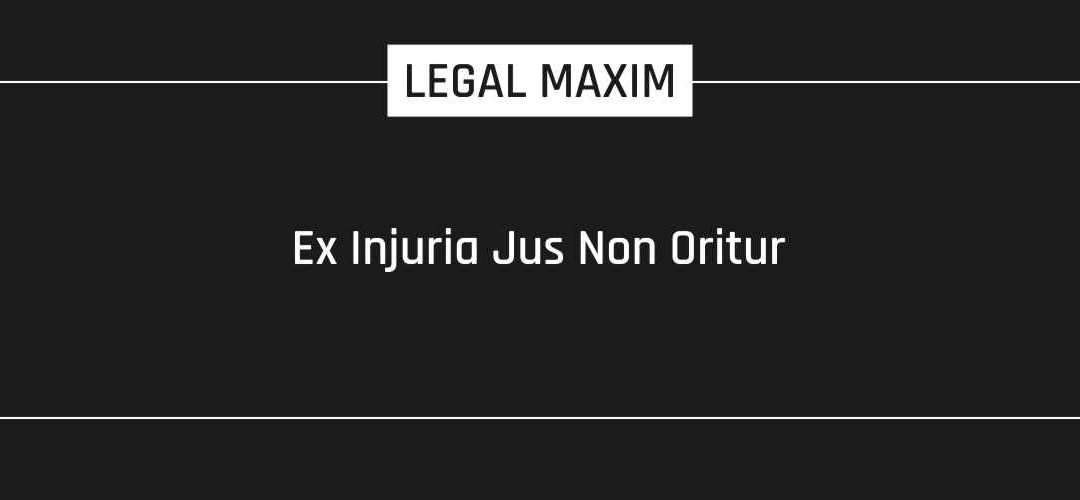Literal Meaning
Illegal Acts Cannot Create Law
Origin
Latin
Explanation
Ex injuria jus non oritur is a Latin phrase which means “illegal acts cannot create law.” In other words, a legal right or entitlement cannot arise from an unlawful act or omission. This means that a right cannot arise from wrongdoing. This is a principle of great importance in international law and suggests that any state which obtains land by nondefensive war or such other aggressive action, cannot claim any legal rights to the land unlawfully obtained. It is often summarized as ex injuria. Certain facts when they spring from crime or other illegal or unlawful acts or omissions, no matter how public or prominent, cannot form the basis of law or legal rights.
The maxim plays an immense role in clarifying certain important dimensions of International Law. In international law it is used to suggest that any state unlawfully obtaining land such as through non-defensive war or other such aggressive action, cannot assert any legal rights to that land unlawfully obtained.
Illustration
For example, if a person seeking to break and enter your home in the middle of the night, fell into a deep construction hole, he could be estopped or precluded from obtaining damages because of ex injuria.
Recent Case Laws in International Law
The recent application of this legal maxim has been in the case of Kulbhushan Yadav. Pakistan before the International Court of Justice pleaded for India’s alleged unlawful conduct. There has been an adequate amount of dependence on the doctrine of “clean hands” and the principles of “ex turpi causa [non oritur actio]” and “ex injuria jus non oritur”, Pakistan contends that India has failed to respond to Pakistan’s request for providing the required assistance with the investigation into Mr. Jadhav’s activities, that it has provided him with a “false cover name authentic passport” and, more generally, that it is responsible for Mr. Jadhav’s espionage and terrorism activities in Pakistan. However, The Court does not consider that an objection based on the “clean hands” doctrine may by itself render an application based on a valid title of jurisdiction inadmissible. It takes into consideration the phenomenal judgment of times that is the case concerning Certain Iranian Assets (the Islamic Republic of Iran vs. the United States of America), it ruled that “even if it were shown that the Applicant’s conduct was not beyond reproach, this would not be sufficient per se to uphold the objection to admissibility raised by the Respondent on the basis of the ‘clean hands’ doctrine”. The Court, therefore, concludes that Pakistan’s objection based on the said doctrine must be rejected
There has been yet another case law wherein the Court elaborated exhaustively his maxim. The Court in Chorzów Factory case reached the same conclusion with respect to the explanation of this principle. The above finding leads the Court to a similar conclusion with regard to the principle of ex injuria jus non oritur, which stands for the proposition that unlawful conduct cannot modify the law applicable in the relations between the parties.
This Maxim has been written and submitted by Ms. Aarushi Kapoor during her course of internship at B&B Associates LLP. Ms. Aarushi is a third-year law student at Hidayatullah National Law University, Naya Raipur, Chhattisgarh.
